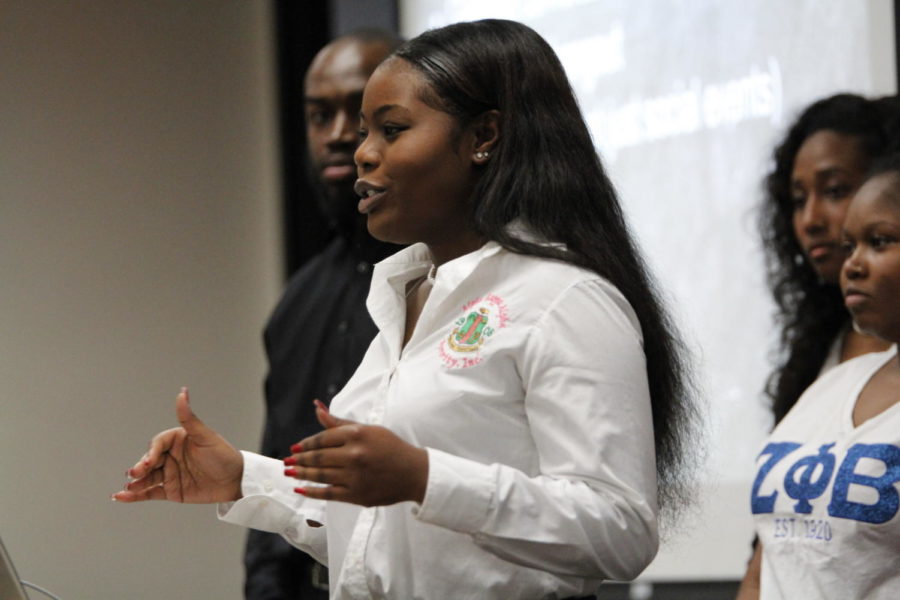NPHC seeks to maintain rich history
Iowa State junior Zakia Brown talks during the National Pan-Hellenic Council (NPHC) 101 meeting. The meeting was for prospective members.
February 9, 2017
Have you ever considered becoming a part of greek life, but negative reputations and stereotypes got in your way? If so, you might be surprised by the National Pan-Hellenic Council’s (NPHC) historic mission.
The NPHC presented its organization and its intents to a wide variety of prospective members, who congregated in Carver Hall on Thursday night.
The board members of the NPHC, as well as leaders of each of the six on-campus fraternities and sororities that are governed by the organization, stood up to represent their constituents, both past and present, with a brief history and an explanation of their mission.
“We’re a safe place for, mostly, black greeks to meet together, talk with each other and share ideas,” NPHC President Chandler Wilkins said.
When the NPHC began, there were not many places or on-campus communities that welcomed black students and their cultures. The founders of the organization acknowledged this by creating one for themselves.
This history remains a defining quality of the NPHC and its mission. On campus, there are six active fraternities and sororities, out of nine national chapters, that continue to carry out their mission of providing an outlet for all Iowa State to feel included and accepted.
Stepping, also referred to as “party walking” or “strolling” is also considered a very important piece of the NPHC’s rich historical background.
Stepping is defined as a style of dance that uses the body as an instrument to produce rhythms and sounds through clapping, stomping and other motions that create sound.
It is often performed, in unison, by a group of people in a circle. This circle is considered a symbol of unity and strength.
This is why, when a step is being performed, it must never be broken up, as the breaking of the circle would be regarded as a sign of disrespect or a breaking of the symbol of unity.
This technique has South African and Ghanaian roots, branching from African slave rituals, all the way to black greek campus societies of the 20th century, including the original NPHC.
This tradition is held sacred to many students and members, as it defines an integral part of their culture and ancestry.
“It shows our history in that we still, to this day, acknowledge our past through these sorts of celebrations,” Wilkins explained.
This organization seeks to represent their past with respect, poise and unanimity.
Whether students are looking for a protected environment of people to share their views with or a way to express their ancestral roots, the NPHC and its chapters are welcoming to all.







